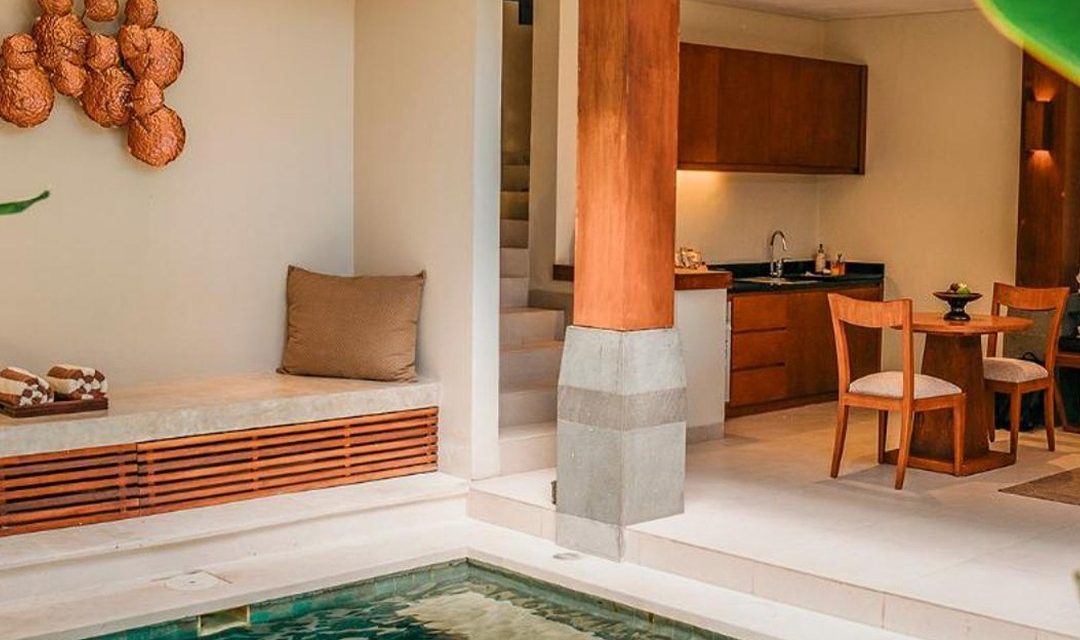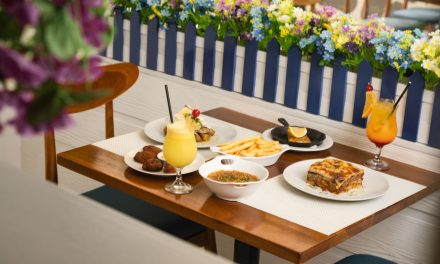When I first visited Ubud, the cultural heart of Bali, I was completely mesmerized by the landscapes, the vibrant arts scene, and of course, the tantalizing aromas wafting from local kitchens. Among them, nothing caught my attention quite like the rich, complex scents of traditional Balinese cooking. Eventually, I found myself signed up for a cooking class that promised a deep dive into authentic Balinese cooking—and it did not disappoint! If you’re planning a visit to Ubud and are eager to immerse yourself in local culture through its cuisine, let me guide you through this delightful experience.
Discovering the Essence of Balinese Cuisine
Balinese cuisine is a feast for the senses. It’s known for its bold flavors, colorful presentations, and the use of fresh, local ingredients. Dishes like Nasi Goreng, Babi Guling (suckling pig), and Pepes Ikan (fish steamed in banana leaves) represent just a snippet of the island’s culinary wonders.
During my cooking class, led by a local chef named Ketut, I discovered that authentic Balinese cooking goes beyond just following recipes; it’s about connection. The warmth of the kitchen, the joy of sharing meals, and the stories behind each dish made the experience truly special.
Joining a Cooking Class
Choosing the right cooking class is crucial. While there are many options in Ubud, I recommend looking for classes that focus on traditional techniques and local ingredients. Here’s what to keep in mind:
1. Small Groups: A smaller group allows for more personal attention. My class had only six participants, which made it easy to ask questions and interact with the chef.
2. Market Tour: Many classes start with a trip to the local market. This was one of my favorite parts! Walking through Ubud’s bustling market, I felt like I was part of the local life. The vibrant colors and enticing smells gave me an appreciation for the fresh produce that Balinese cooks use. I learned about ingredients like lemongrass, galangal, and a variety of spices that are the backbone of Balinese cooking.
3. Hands-On Cooking: Of course, the highlight was cooking together. We minced, blended, and sautéed our way through recipes. I remember the first time I ground spices using a mortar and pestle. There’s something gratifying about using traditional methods—it’s like connecting with centuries of culinary tradition.
4. Cultural Insights: A knowledgeable instructor will often share stories behind the dishes. For instance, Ketut explained how certain foods are prepared for religious ceremonies, emphasizing the spiritual relationship Balinese people have with food.
Learning New Skills
One of the best parts of participating in an authentic cooking class is the hands-on experience. Not only did I learn how to make classic dishes, but I also gained skills that I could bring back home. Here are a couple of techniques that stood out to me:
– Making Spice Paste: We crafted a traditional spice paste called “bumbu,” which included a mix of shallots, garlic, turmeric, ginger, and chili. The process of grinding the spices by hand felt almost meditative.
– Creating Nasi Goreng: I remember the thrill of making my own Nasi Goreng—it’s a simple fried rice dish, but when you throw in freshly cooked veggies, protein of your choice, and that homemade bumbu, it becomes something magical.
Relating to the Experience
Imagine gathering in a charming outdoor kitchen surrounded by lush greenery, the sounds of nature wrapping around you as you chop, stir, and taste. Engaging with others who share a passion for food can create a unique bond. I ended up chatting with fellow participants about their favorite dishes and travel stories, and we all agreed that food is a universal language—it connects us all.
On the final day, we sat down together, sharing the meals we had prepared—an array of colorful dishes lining the table, and as we shared a meal, laughter and stories flowed as easily as the delicious homemade coconut juice.
Practical Advice for Your Culinary Journey
1. Book in Advance: Ubud can be bustling with tourists, especially in the high season, so securing a spot early is a smart move.
2. Bring a Notepad: Jot down the recipes and techniques as you learn them. It’ll be a great reference when you try to recreate the magic back home.
3. Be Open-Minded: Embrace the experience! Try new ingredients, experiment with flavors, and let yourself be guided by your instructor’s expertise.
4. Ask Questions: Don’t hesitate to ask about the cultural significance of certain dishes or techniques; it’s all part of the learning journey.
5. Enjoy the Process: Cooking should be fun! Don’t stress about perfection; enjoy the flavors and the joy of creating.
Final Thoughts
Attending an authentic Balinese cooking class in Ubud turned out to be one of the highlights of my trip. It has not only equipped me with valuable culinary skills but also granted me a deeper understanding of Balinese culture and community. If you’re heading to Ubud, step into the kitchen, roll up your sleeves, and prepare for a deliciously rewarding adventure. After all, the heart of Bali lies in its food—so why not savor it? Happy cooking!






